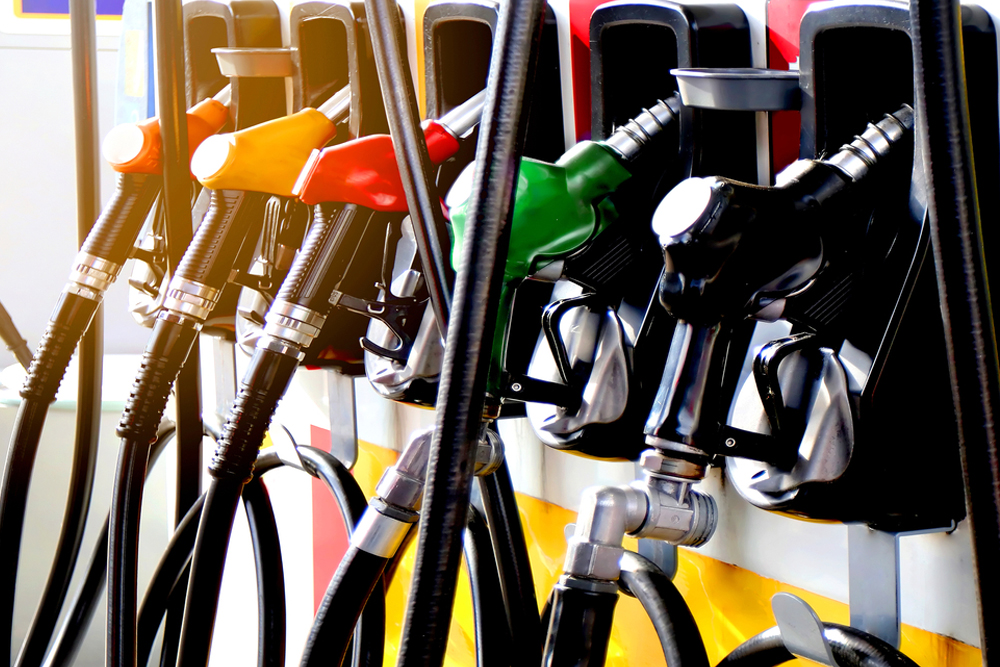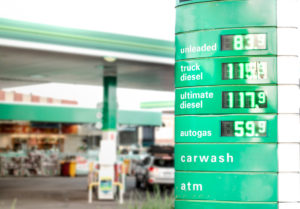How to choose the right fuel card for your fleet
Written by: Simon Pavey, Last updated:14th February 2022

Fuel is one of the biggest costs for any business managing vehicles. Whether it’s a few cars or light vans for local deliveries or a large national HGV fleet, petrol and diesel expenses will usually be your biggest outgoing.
That’s why it pays to have a fuel card to reduce these costs. However, there are a wide range of options available, so how do you know if you’re getting the best fuel card for your business?
There’s much more to think about than how much you’ll pay for your fuel. In fact, there are many factors that should go into your decision. If you’re looking at fuel cards for the first time, it can seem like a complex process.
However, it doesn’t have to be. Read on to learn everything you need to know about how to choose the best fuel card for your firm, whether you’re a small business or a large enterprise.
Why you need a fuel card
The first step should be to determine whether you need a fuel card, and understand the benefits you can expect to see. For instance, if you’re a microbusiness running just one vehicle in your local area, you may not see many benefits from these services unless you spend a lot of time on the road.
However, as soon as you start adding more vehicles to your fleet, the benefits become clear. You don’t need to run dozens of cars and vans to save time and money. Even if you’ve only got a handful of vehicles, a fuel card is likely to offer savings if they’re in use frequently.
Therefore, the vast majority of firms will be able to enjoy benefits such as lower costs, better control over their vehicles and reduced admin.
But if you don’t select the right card, you may miss out on some of these advantages.
Fixed-price or pump price
A big decision is whether to opt for a fixed-price or pump price fuel card. As the name suggests, a fixed-price card will ensure you pay the same price for your fuel, no matter where you fill up. This is usually set on a weekly basis and gives you a clear idea of how much you’ll expect to pay.
Pump price, meanwhile, sees you pay the cost advertised at the pump. They may not offer as much savings as fixed-price cards, but they are convenient and easy to use. The downside is you may be more exposed to price fluctuations and premiums at motorway filling stations, for example.
If you buy large amounts of fuel or send vehicles up and down the country, fixed-price offers more certainty and the potential for savings. However, pump price cards tend to offer greater flexibility and let you fill up in a wider variety of locations.
Location matters
The next question is about location. You need to do some research to see what services are available in your area.
This will determine which brand would be best for you. There’s no point in opting for a branded fuel card that promises the biggest saving if the supplier doesn’t have any filling stations in close proximity.
If you’re only able to fill up at one or two locations or have to make a large diversion in order to get the benefit of lower prices, this will negate many of the benefits and harm overall productivity.
What routes do you use?
It’s not only fuel stations near your base you may need to consider, but the routes you take. If you have a clearly-defined schedule and routes, choosing a fuel card with locations that align closely to this will be more useful.
If you’re running a national business with lots of motorway driving, or a more unpredictable schedule where drivers won’t know where they’ll be needed on any given day, a more widely-accepted card could be essential.
This is also a key factor to consider when deciding whether to choose a branded or non-branded card. A branded card from the likes of BP or Shell might be less useful if your fleet remains local, but the wide range of national locations they offer could be invaluable for other firms.
Consider fuel and vehicle types
The type of vehicles you have and the fuel they use will also be important. If you’re only running a small number of diesel vans, for instance, a diesel-only card makes sense.
However, it might mean you have more limitations if you’re looking to expand your fleet in the future. If this is the case, a mixed card that works for both petrol and diesel can give you more flexibility when it comes to choosing new vehicles.
If you’re running HGVs, you should also look carefully to find the best fuel card for trucking companies. These vehicles will have unique needs, such as requirements for high-canopy stations with more space to manoeuvre. Therefore, you may benefit from fuel cards that are tailored specifically to these demands.
Don’t overlook other benefits
Aside from these key factors, there are many other benefits you may be able to enjoy with the right fuel card.
For example, one major advantage will be reduced admin and paperwork. Some cards offer easy reporting and analytics for receipts and expenses to reduce the burden on fleet managers. You may also be able to set spending restrictions or allowances to avoid the need for separate expense forms for employees to fill out.
Cracking down on fraud is another important consideration. Look for a business fuel card that can closely monitor transactions and flag up anything that may be suspicious. For example, they may be able to spot unusual activity or vehicles that appear to be using more fuel than they should.
As you can see, there’s a lot that goes into choosing the right fuel card. If you’re confused or want more information, we’re here to help. Get in touch with our expert team today and we’ll help you find the right fuel card for your business.
back




